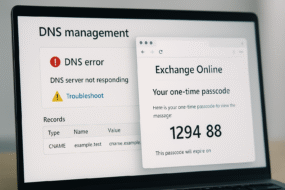A newly discovered variant of the Konfety Android malware is raising alarms in the cybersecurity community, thanks to its advanced evasion techniques, including the use of malformed APKs, dynamic code loading, and encryption-based obfuscation.
According to mobile security researchers at Zimperium, this updated malware poses as legitimate applications by copying branding from well-known Google Play apps. Once installed—primarily through third-party app stores—Konfety performs a range of malicious activities while lacking any real functionality.
🔍 What Konfety Does
Konfety performs the following actions on infected devices:
- Displays hidden ads using the CaramelAds SDK
- Pushes fake browser notifications
- Redirects users to malicious websites
- Gathers data such as installed apps, network configuration, and system info
One particularly dangerous feature is the inclusion of an encrypted secondary DEX file inside the APK. This file is decrypted at runtime, enabling the malware to execute hidden services and load additional malicious modules dynamically, which could upgrade the threat without user knowledge.
🛡️ Evasion Techniques
Konfety’s creators have employed a number of anti-analysis and evasion methods:
- Fake Encryption Flag: The APK sets the “General Purpose Bit Flag” to falsely indicate encryption, tricking analysis tools into prompting for passwords.
- Unsupported Compression: It uses BZIP compression, unsupported by popular tools like APKTool and JADX, causing them to crash during parsing.
- Dynamic Code Loading: It hides critical malicious logic in an encrypted DEX file only activated during runtime.
- “Evil Twin” Strategy: It mimics popular apps to trick users into downloading the malware.
While Android itself ignores the unsupported compression method and installs the app without issue, security analysis tools fail to parse it properly, letting the malware bypass traditional detection.
🌍 Region-Aware Behavior
Once installed, Konfety hides its app icon and modifies behavior based on geofencing, adapting its activity based on the user’s geographic location—making analysis even more complex.
Similar compression-based obfuscation methods were previously reported in SoumniBot malware, which used invalid declarations and oversized strings to confuse tools, as noted by Kaspersky in April 2024.
⚠️ Security Advice
Users are strongly advised:
- Avoid third-party APK stores
- Install apps only from trusted publishers
- Use updated antivirus and anti-malware tools
- Regularly monitor permissions and data access
As Android malware continues to evolve in complexity, tools and users alike must adapt to defend against deceptive techniques like those used by Konfety.





